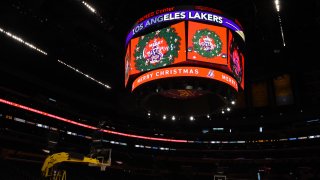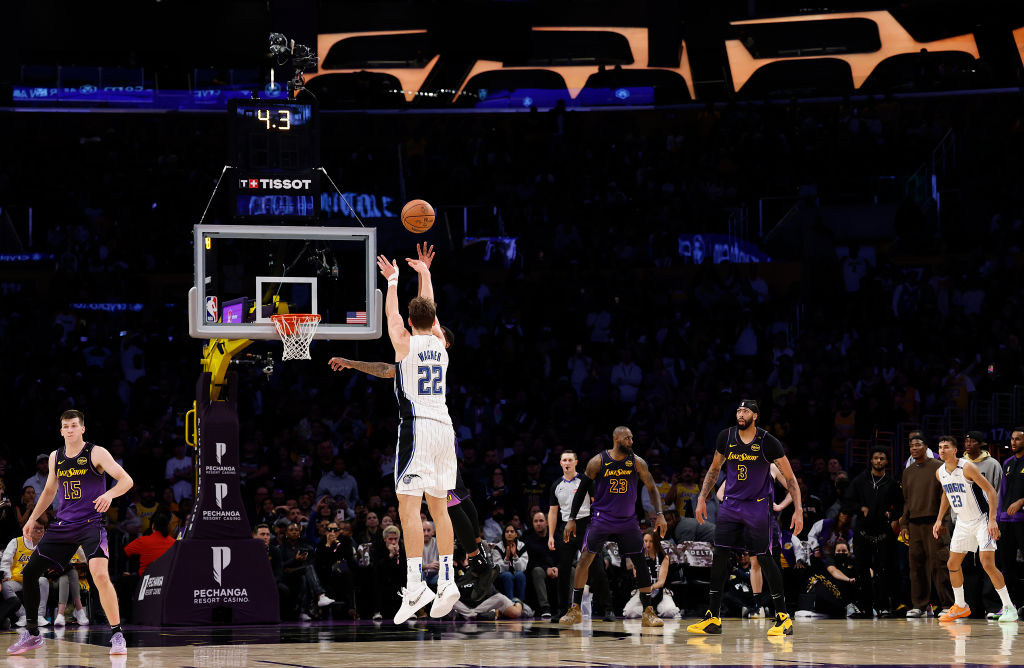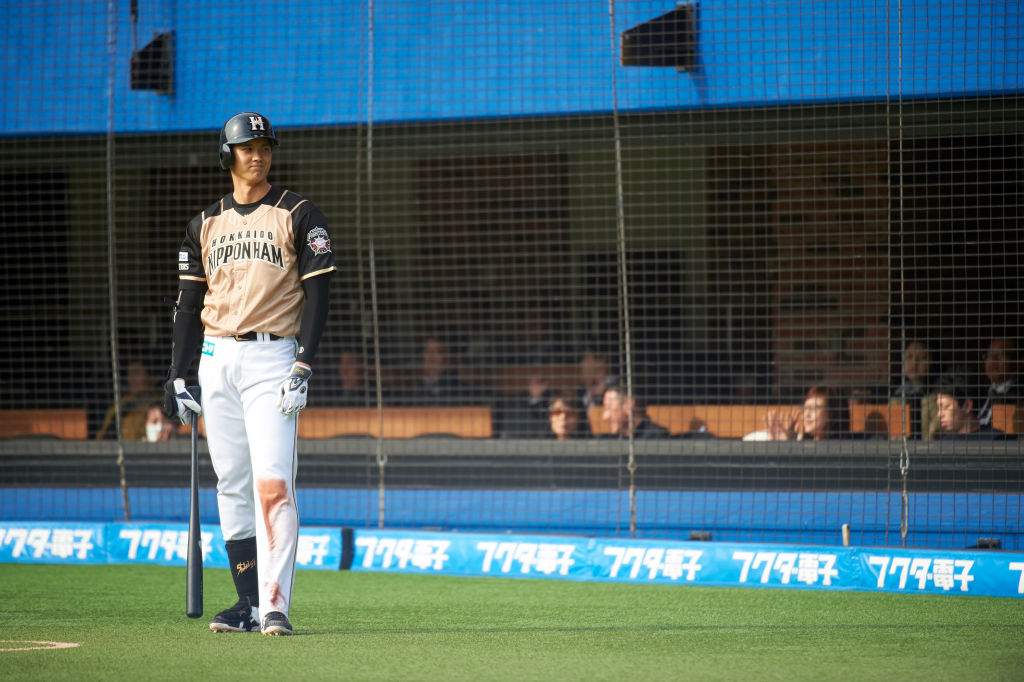
The National Basketball Association is at a pivotal moment in their history.
On Friday, both the NBA board of governors, and the NBPA approved the 22-team return to play date and format to finish the 2019-20 season.
If all goes to plan, the league that was the first major professional sport in the United States to suspend their season; will also become the first to resume their season on July 31 at Disney World in Orlando, Florida.
The NBA’s pivotal moment in their history couldn’t have come at a better time. Over the weekend, some of the NBA's biggest stars joined the Black Lives Matter protests nationwide in solidarity. Giannis Antetokounmpo, Steph Curry, DeMar DeRozan, Damian Lillard, and Russell Westbrook all marched and spoke to the crowds.
That should come as no surprise to the public. The NBA is one of the few leagues in all of professional sports that has not only encouraged player empowerment, but nurtured it. The NBA emboldens their players to speak out agains social injustice, and use their platforms as a megaphone for change.
You haven't seen many MLB players front and center at the protests. Instead, the millionaire players and billionaire owners are publicly feuding over pennies on the dollar in the grand scheme of things. Meanwhile, the NFL continues to pretend like the coronavirus doesn’t exist. That leaves the NBA in a unique position to capitalize off of the missteps of their rivals by keeping their foot on the proverbial gas pedal.
A successful and entertaining six-week stint at the Wide World of Sports venue could boost the NBA's popularity both domestically and internationally.
Local
Get Los Angeles's latest local news on crime, entertainment, weather, schools, COVID, cost of living and more. Here's your go-to source for today's LA news.
Had COVID-19 not struck, the NBA season likely would have been over by now and players would be enjoying their summer break before training camps begin in October. With the resumption of the league occurring on July 31, the NBA Finals could end on October 12 (if a Game 7 is played). Where does that leave the start date of the following season, and what impact will the stop-and-start nature of this coronavirus impacted season have on the future of the NBA's season?
Despite the obvious objections of the eight teams that were eliminated from the playoffs and therefore not invited to the resumption of the season in Orlando, there's no plausible way that the 2020-21 NBA season will begin on October 22 as it did in 2019.
There have been rumors that the NBA would permanently like to start the season on Christmas Day, and the coronavirus now presents a unique opportunity to do so. However, there are many problems with pushing the start of the season back by two months forever.
From Opening Night in October, to the final game of the NBA Finals in June, the NBA season usually spans anywhere from 230-240 days; roughly eight consecutive months of basketball. If the 2020-21 season began on Christmas Day, using the same metrics, the season would not end until somewhere between Aug. 18-21 of the year 2021. That date would be nearly two weeks after the conclusion of the 2021 rescheduled Olympics in Tokyo, Japan.
Presumably, the United States Men's Basketball Team still plans on sending the league's top players to the Olympics every four years. In order for that to occur in conjunction with a permanent start date on Christmas Day, the league would have to do one of two things: either shorten the season, or shorten the playoffs.
The NBA playoffs are the league's bread and butter. The likelihood of the league lowering one of their biggest revenue generators appears to be far-fetched. That leads us to the possibility of a shortened season, something that Commissioner Adam Silver has publicly said he's open to.
"There's nothing magical about 82 games," Silver said back in 2017. "It's been in place for 50 years, but the long-term planning of the league, as we learn more about the human body and the wear and tear of travel and the competitive landscape…invariably we'll look at the regular season."
Silver repeated some of those claims as recently as April of 2019, and the coronavirus now presents him with the opportunity to shorten the season permanently.
The regional television networks have a contract with the NBA for a minimum number of regular season games. Currently, that number stands at 70. In theory, the NBA could shorten the 2020-21 season to 70 games, tighten up the schedule a little bit, and finish the season by the end of June, giving the United States Men's Olympic Team enough time to practice and train before heading off to Tokyo.
Now, it's possible that Silver starts next season on Christmas Day and shortens it to 70 games, but only temporarily. In this scenario, he would slowly try and get the season back to its normal start time of October. That could mean a Thanksgiving Day NBA Opening Night in 2021, a Halloween Opening Night in 2022, before ultimately getting back to the customary mid-October start time.
The larger question may not be what the NBA decides to do when it comes to recalibrating the season in the future, but why?
The start of the NBA season is currently in direct competition with college football and the behemoth that is the NFL. Rather than competing with the biggest league in American sports for four months, they could compete with them for only one month.
Since the NFL does not play on Christmas Day, all eyes would be on the NBA on Opening Night. As the season is still in its infancy, sports fans will be glued to the NFL playoffs. By the time the NCCA National Championship and Super Bowl winner has been crowned, the NBA will have barely played 15 games. Basketball will have all eyes on them until Major League Baseball begins at the end of March/early April. Just in time for the NBA playoffs.
A shortened season will not only appease the Commissioner, but the players as well. Many enjoy having their summers off, and it's the perfect time for their brands and endorsement deals to send them overseas for publicity tours. If the season was not shortened, and instead played until the end of August, players would admittedly gripe about having their summer vacations cut short.
The owners might not be on board initially. After all, the league would be taking six games of home revenue out of their pockets. However, that could easily be remedied by either adding more preseason games, hosting an international tournament during the All-Star Break, or by adding the current "play-in" game model that the league will test out in Orlando.
There is however one major hurdle to starting the season on Christmas Day 2020. That's the very real possibility that the COVID-19 pandemic is still ongoing at that time. A second wave of the virus is expected in the winter, and a vaccine is not expected until early 2021 at the earliest. If both of these prognostications prove to be true, then how could the NBA safely start again on Christmas Day?
Sure they could play at their home stadiums without fans, but that's a topic that Silver already shunned earlier in May.
"There's no point in adding risk for flying all of you city to city if there's not going to be fans," said Silver on a call with players.
On the same call, Silver told the players that if there is no vaccine by the start of the following season, that they could end up playing without fans into 2021.
Could the 2020-21 NBA season begin at a neutral site like Disney World again? Perhaps, but one thing is for certain: the future of the NBA could forever be altered by the coronavirus.



